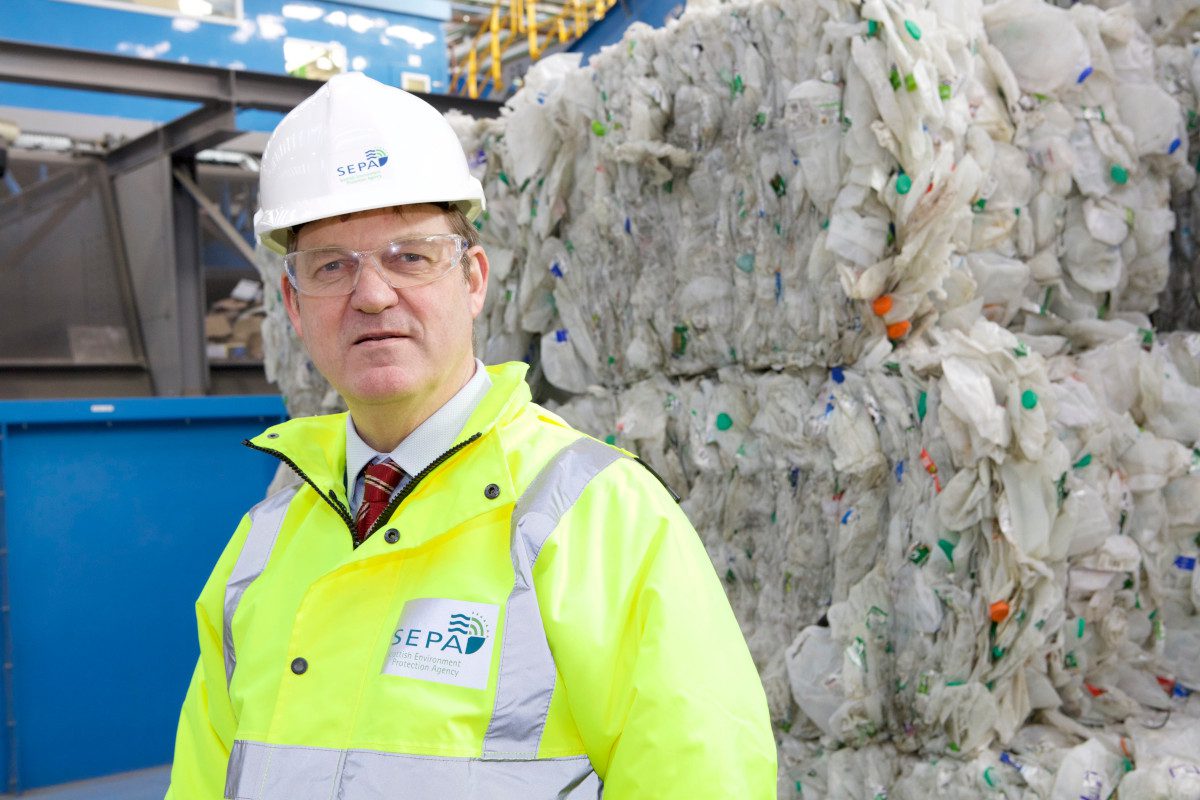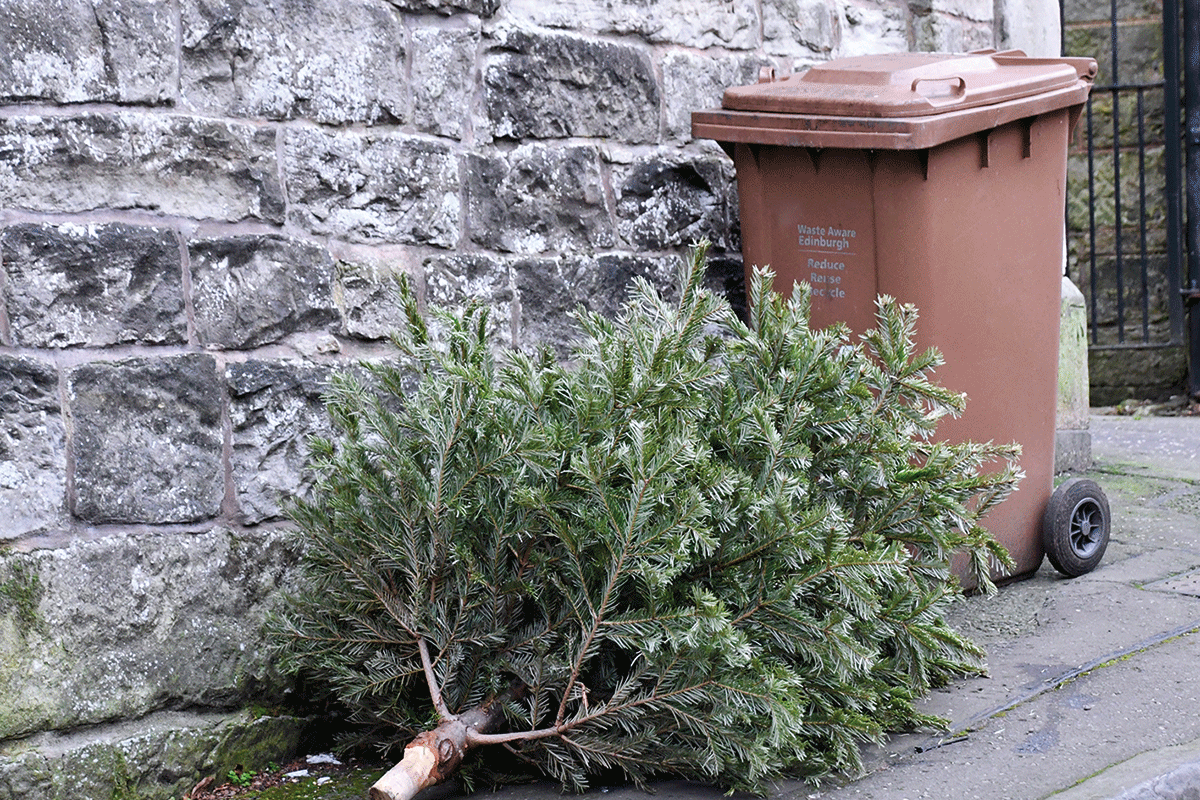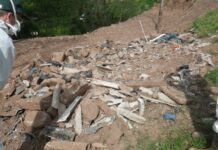
The Scottish Environment Protection Agency (SEPA) published statistics on 7 December detailing household waste collected across all local authorities during 2020, as well as waste landfilled and incinerated in Scotland in 2020. Key highlights include:
- COVID impacts likely to be responsible for a 2.9 percentage point reduction in household recycling rates from 2019 to 42%
- Household waste generated increased 0.3% to 2.4 million tonnes
- Scottish household waste landfilled reduced by 13.0% to 660,000 tonnes
- Carbon impact of household waste down 1.3 million tonnes of CO2 equivalent from 2011
- Reduction of all waste landfilled in Scottish by 13.0% to 2.6 million tonnes
- Increase of all waste incinerated in Scotland by 3.1% to 1.26 million tonnes
Household waste recycled and landfilled decreases
Scotland’s overall household waste recycling rate reduced from 44.9% to 42% from 2019, still 2.5 percentage points up from the 39.5% achieved in 2011. It is likely that COVID-19 impacts are the main driver behind this reduction. The total amount of Scottish household waste recycled was 1.02 million tonnes, a decrease of 66,000 tonnes (6.1%) from 2019.
There was a reduction in the amount of some waste materials recycled, such as construction and soils (reduction of 26,000 tonnes, 14.8%) and composting of vegetal wastes (reduction of 17,000 tonnes, 5.7%), while there was an increase in the amount of other waste materials recycled, such as such as glass wastes (15,000 tonnes, 14.4%) and plastic wastes (8.3%, 5,000 tonnes).
The amount of Scottish household waste landfilled in 2020 was 660,000 tonnes, a reduction of 98,000 tonnes (13.0%) from 2019, and a reduction 794,000 tonnes (54.6%) from 2011. This is the ninth consecutive decrease in household waste landfilled. This decrease is primarily due to more waste being diverted from landfill to incineration and in part less waste being generated.
For 2020, the total amount of Scottish household waste managed by other diversion from landfill was 748,000 tonnes, an increase of 171,000 tonnes (29.7%) from 2019 and an increase of 625,000 tonnes (508%) from 2011. This includes waste incinerated, incinerator outputs recycled, and organic material recycled that does not meet quality standards.
2020 data reflects a continued downward trajectory since 2011 in Scotland’s household waste carbon impact. The carbon impact of Scottish household waste generated and managed in 2020 was 5.4 million tonnes of carbon dioxide equivalent (TCO2e), which is the equivalent to 1.00 TCO2e per person. This was a decrease of 225,000 TCO2e from 2019, and a reduction of 1.33 million TCO2e since 2011. This is largely due to increased recycling for high impact waste materials as well as reductions in waste generated and reduced landfilling of biodegradable waste.
Data for every one of Scotland’s 32 local authorities are available on SEPA’s website.
Waste landfilled in Scotland sees continued reduction, says SEPA
The total quantity of waste landfilled in Scotland in 2020 was 2.6 million tonnes, a reduction of 390,000 tonnes (13.0%) from 2019 and a reduction of 4.4 million tonnes (62.9%) from 2005. This is the ninth consecutive reduction in waste landfilled across Scotland. This decrease is primarily due to more waste being diverted from landfill to incineration and in part less waste being generated.
Part of the reduction was largely due to less soils landfilled, which decreased by 340,000 tonnes (29.0%) from 2019. This is likely a result of reduced construction activity in Scotland due to COVID-19 restrictions during the reporting period.
The waste landfilled in Scotland statistics are available on SEPA’s website.

Waste incinerated in Scotland increases
The total quantity of waste incinerated in Scotland in 2020 was 1.26 million tonnes, an increase of 38,000 tonnes (3.1%) from 2019, and an increase of 855,000 tonnes (208%) from 2011. There was, however, a 15.3% reduction (75,000 tonnes) of wood waste incinerated, a likely impact of COVID-19 restrictions such as closure of household waste recycling centres and reduced construction activities during the reporting period.
The waste incinerated in Scotland statistics are available on SEPA’s website.
Iain Gulland, Chief Executive, Zero Waste Scotland, said the disruption caused by COVID-19 seemed to have hit recycling efforts in 2020 – the closure of recycling centres in many areas appearing to have had the greatest impact.
“The good news is that the volume of materials collected for recycling at the kerbside increased, showing that there is a keen appetite to recycle more amongst householders.
“There was a huge collective effort from local authority staff in all departments, as well as private sector resource management companies, to keep the show on the road during the strictest lockdowns, and periods of heavy staff absence. This hard work was very much appreciated by the public. Without all of these efforts, the recycling rate may have been more severely affected.”
Gulland added, “As we move out of the initial shock to services caused by the pandemic, we need to redouble our collective efforts to increase the national recycling rate, with improved infrastructure and continued engagement with householders.







